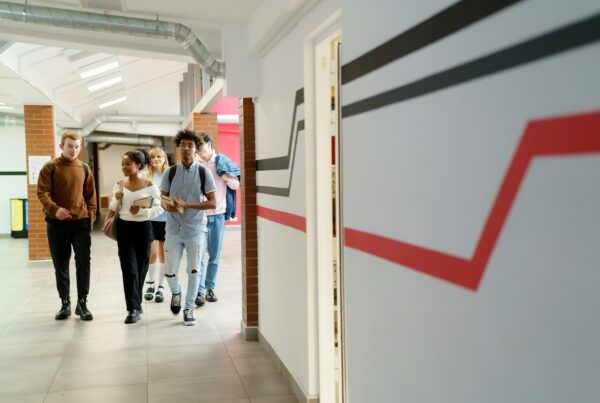Standing up new student success initiatives (SSIs) at postsecondary institutions is often an exciting—but daunting—task. SSIs such as academic coaching, first-year experiences, tutoring, or summer bridge programs help students navigate and excel in college.
Once launched, however, figuring out how to scale up and sustain these programs can pose an even greater challenge.
In our decade of experience, rpk GROUP has found that cohort models are an attractive solution for institutions, systems, and funders looking to support sustainable student success. Cohorts provide a forum to share topical information, peer experiences, and tools that sharply increase the learning curve among those involved. The cohort structure offers connections for camaraderie and commiseration, opportunities to learn from others’ successes and failures, and motivation to persevere.
We find that the lessons learned through intensive focus on a singular campus initiative also can be applied to other types of campus initiatives. The frameworks and concepts are replicable even though the application is custom.
Our team has led a variety of cohort models in various shapes and sizes, all focused on student success. Campuses engaged in cohort models are typically represented by a small team of three or fewer faculty or staff directly involved in the initiative or ancillary functions (e.g., provost, business office, institutional research).
Cohorts can vary in length—from multiyear initiatives aiming for sustained impact, to shorter initiatives aimed at accomplishing specific goals in a condensed timeline. At rpk, we designed a multiyear cohort helping SUNY system campuses to scale and sustain their state’s investment in affordable learning materials. Extended approaches like the one at SUNY provide opportunities to address a comprehensive set of topics that support scale and sustainability efforts, including infrastructure, resources, and culture, as well as various planning and implementation approaches.
We’ve also led condensed, multi-month cohorts that focus on one select topic. An rpk favorite includes providing support around financial sustainability for SSIs. We’ve partnered with APLU and USU campuses to shepherd several cohorts through a wide diversity of SSIs, such as campus food pantries and experiential entrepreneurship academies. Participants come with SSIs that are important to their own campus, because rpk’s frameworks and approaches have proven broadly applicable.
For the time-pressed, we’ve also conducted shorter multi-week cohort models. Some of these offerings have delved deeply into one topic, such as a cohort we ran for a group of community college presidents on pandemic-relief funding in conjunction with the Aspen Institute. We’ve also led cohorts with the American Council on Education to provide college leaders with a high-level primer on financial sustainability concepts.
These various cohort model approaches may differ in depth, intensity, content, and participants, but some common themes have emerged from this work:
- Experiential activities make it real. All cohorts include one or more ‘homework’ activities. For example, participants may be asked to populate a financial model to understand whether their business model is sustainable. Or, they may be asked to create action plans, marketing materials, or communication pitch decks that they can put into action or keep ‘on the shelf’ for quick access when an opportunity arises with campus leaders or peers. Cohort members that are not yet ready to use these tools still find the exposure beneficial and can plan to use the tools when the time is right.
- Shared experiences seed peer inspiration and learning. Cohorts offer a nice blend of expert and peer advice—and the more cohorts we’ve led, the more we’ve realized the importance of that peer-to-peer sharing. rpk provides the tools and training plan, but the enthusiasm, knowledge, and participation of the cohort members makes each experience unique. Participants value hearing what other colleges are doing—what works and what doesn’t. In many instances, there’s no need to recreate the wheel; instead, they can adopt, build, and iterate on the experiences of others.
- Sustainability benefits from cultivating culture. Sustaining SSIs is more than just investing in technical capabilities. It also requires vision, communication, goals, and generating the information necessary to inform decision making. Cohorts may focus on one aspect of this work, but participants come away with a greater appreciation of the many interlocking pieces that make up the scale and sustainability puzzle. And importantly, cohort participants realize they can’t—and shouldn’t—do it alone. They need to cultivate other stakeholders, leaders, and communities on their campus to create a culture of success.
In our decade of leading cohorts, rpk has learned a lot. Cohort models afford colleges an opportunity to learn from experts and each other, and then confidently apply that knowledge and those tools to help scale and sustain many different types of student success initiatives. We hope the few lessons shared here help those planning to build, launch, or join cohorts to address barriers to sustainable student success.


